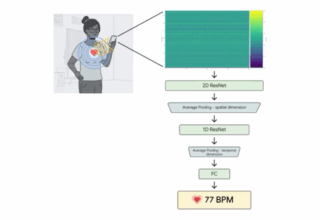Jim and Janna have no debt and plenty of money in the bank, much of which will go to pay for their new condo in a desirable Toronto neighbourhood when it is finished in a year or so. They sold their house last fall and are renting downtown until their condo is ready, Jim writes in an e-mail. He is 55, she is 53.
“We both have excellent full-time jobs and have been working for more than 25 years,” Jim writes. He is in management, she is in sales. Together they bring in $325,000 a year.
They’ve had a number of “unexpectedly early deaths” in their family and among their circle of friends, Jim adds. “This has us pondering earlier-than-previously-thought retirement.”
Their question: “Do we have enough money to retire now?”
They had had some bad experiences with investment advisers “over-promising and under-delivering,” so they have all their money in savings accounts and guaranteed investment certificates. “We would not want to put our capital into the market,” Jim writes.
Their goal is to travel extensively while they are still healthy, so they have no need of a permanent home in Canada right now. When they’re done globetrotting they would be content to rent, so they wonder if they should sell their new condo once it closes and invest the money.
When they retire, they figure they’ll need $100,000 a year after tax for the first 15 years to cover travel costs, falling to $60,000 a year for the remainder of their lives.
We asked Warren MacKenzie, a principal at HighView Financial Group in Toronto, to look at Jim and Janna’s situation.
What the expert says
Jim and Janna plan to sell their condo when he is age 69 at the latest and invest the proceeds, Mr. MacKenzie says. They have no children, so they do not need to leave an estate, “but they need their money to last until at least age 90.” They have $2.1-million in GICs and savings accounts, about $850,000 of which will go to complete the purchase of their condo.
The risk to their plan is the low rate of return they are getting on their investments and the need for their condo’s value to keep rising at least at the rate of inflation, he says.
“For the rest of their life, if they continue to earn an average of 2 per cent a year on their portfolio, and spend as planned, and if nothing goes wrong, and if condo prices continue to appreciate at least at the rate of inflation, they will still have about $500,000 (in dollars with today’s purchasing power) by age 90,” Mr. MacKenzie says. Because they have no children to fall back on, they might want a larger buffer for unexpected expenses. “They would have a larger cushion – almost $900,000 – if they earned an average of 4.5 per cent a year on their investments.”
If avoiding stock market risk is paramount, they might have to cut back their retirement spending plans or risk running out of money before age 90, he adds. Alternatively, they could work a few more years.
“If they want to be able to spend more on their lifestyle and protect themselves against the possibility of a real estate crash, they should educate themselves about sensible investing strategies,” he says. They could invest in a conservative, well-diversified portfolio, including growth and dividend-paying stocks, diversified geographically, and a mix of corporate and government bonds – and be prepared to live with some short-term portfolio volatility, Mr. MacKenzie says.
“They have to understand the trade-off. They can avoid stock market risk, but this will make them more vulnerable to the risk of not earning enough to maintain their desired lifestyle. If they are earning an average of 2 per cent a year, they will run out of money if the condo market is significantly lower at the time they want to sell.”
Jim and Janna ask if it would make sense to sell the condo now and invest the proceeds. “If they are going to invest the proceeds and earn only about 1 per cent a year after tax, this additional income, plus what they save in condo fees, would not be enough to pay for a comparable rental apartment,” the planner says. So there is no advantage to selling now.
To avoid bad investment experiences, Jim and Janna need to follow a disciplined investment process, have a “goal-based” portfolio taking only as much risk as necessary to achieve their goals, be well-diversified, use “best in class” asset managers, insist on full disclosure of all fees and costs and have a detailed investment policy statement so they can hold their investment adviser accountable, Mr. MacKenzie says.
[“source-theglobeandmail.com”]













